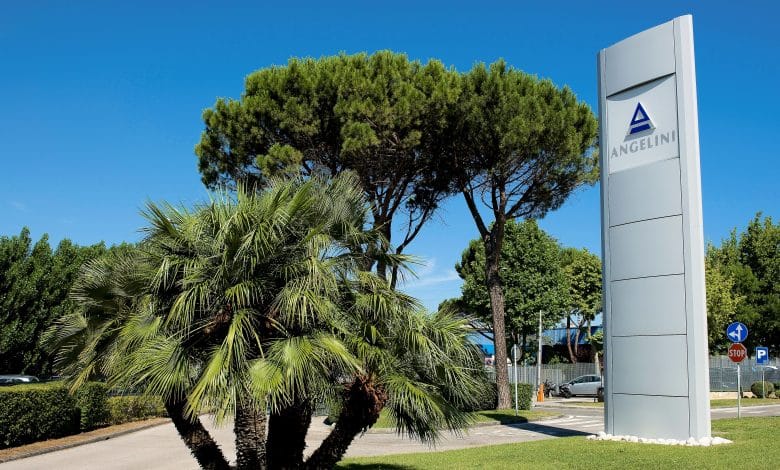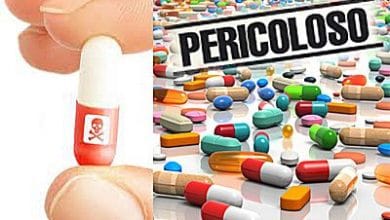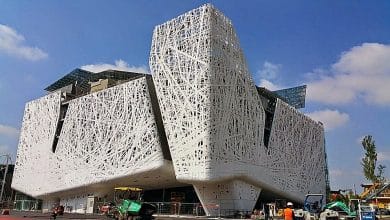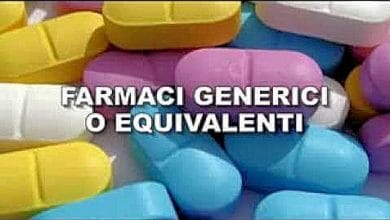
The host of the event, organized with Pfizer, was the Angelini plant in Ancona which boasts excellent production destined for over 50 countries around the world; in Ascoli Piceno, 72% of total manufacturing exports.
Of Aboutpharma Online editorial staff – October 2, 2015
 A quality industry, which employs 2,800 direct employees and related industries, of which 1,400 employees in the production plants of Ancona and Ascoli Piceno, high-performance locations: in Ancona, excellent production destined for over 50 countries worldwide; in Ascoli Piceno, 72% of total manufacturing exports. It is the photograph of the pharmaceutical industry in the Brands, seventh stage of the roadshows itinerant “Innovation and Production of Value. The drug industry: a heritage that Italy cannot lose” started by Farm industry in 2012.
A quality industry, which employs 2,800 direct employees and related industries, of which 1,400 employees in the production plants of Ancona and Ascoli Piceno, high-performance locations: in Ancona, excellent production destined for over 50 countries worldwide; in Ascoli Piceno, 72% of total manufacturing exports. It is the photograph of the pharmaceutical industry in the Brands, seventh stage of the roadshows itinerant “Innovation and Production of Value. The drug industry: a heritage that Italy cannot lose” started by Farm industry in 2012.
The data on the pharmaceutical excellence of the Region were presented today during a meeting organized together with Pfizer at the factory Angelini of Ancona: two companies that are the absolute protagonists of the growth of the sector in the area which in the period from 2009 to 2014 saw pharmaceutical exports grow from 8% to 20% compared to total manufacturing. So much so that today the regional export of the Marche exceeds that of entire European countries such as Poland, the Czech Republic, Romania, Portugal, Finland.
“Each factory – explained the president of Farmindustria, Massimo Scaccabarozzi – represents a manufacturing and social value for the territory. And for the entire pharmaceutical sector which has been, especially in recent years, one of the co-protagonists in the country's industrial landscape. Production, innovation especially biotech, exports, global competitiveness: fields in which every single company is an excellence. A sector which is therefore a flagship of Made in Italy. We are aware and have the ambition - he concluded - that if the stability of the rules of the last 2 years is guaranteed, we will be able to become a global hub and the first producing country in Europe, overtaking Germany."
AND the data – recalled during the meeting in Ancona – confirm the positive trend: 174 factories in the area, 63,000 employees and 2.5 billion in investments in 2014. In the last year there has also been an increase in production (+4 ,5%) with 28.7 billion euros and the historical maximum reached by exports (72% of production) with 21 billion. Without forgetting that our country was, from 2010 to 2014, the first in the world for growth in value of exports of drugs and vaccines. The Italy of drugs was thus able to consolidate the second position in Europe after Germany among the nations medicine manufacturers. And after years of decline, employment, also thanks to the Jobs Act, has started to rise again: 5,000 new hires – half that under 30 – in the last 12 months they have exceeded the number of outgoing workers. An increasing trend which is confirmed in 2015, with employment in large companies which in June was 1% higher than in December, especially for production workers (+8%). Growth due to the increase in investments in research (by around 10% in 2015 according to initial estimates) and in production (+6% compared to +1% of the total industry), once again driven by exports (+8%).
the data – recalled during the meeting in Ancona – confirm the positive trend: 174 factories in the area, 63,000 employees and 2.5 billion in investments in 2014. In the last year there has also been an increase in production (+4 ,5%) with 28.7 billion euros and the historical maximum reached by exports (72% of production) with 21 billion. Without forgetting that our country was, from 2010 to 2014, the first in the world for growth in value of exports of drugs and vaccines. The Italy of drugs was thus able to consolidate the second position in Europe after Germany among the nations medicine manufacturers. And after years of decline, employment, also thanks to the Jobs Act, has started to rise again: 5,000 new hires – half that under 30 – in the last 12 months they have exceeded the number of outgoing workers. An increasing trend which is confirmed in 2015, with employment in large companies which in June was 1% higher than in December, especially for production workers (+8%). Growth due to the increase in investments in research (by around 10% in 2015 according to initial estimates) and in production (+6% compared to +1% of the total industry), once again driven by exports (+8%).
Marazziti, pharmaceuticals is a piece of the future, rethinking the system
 “Italian pharmaceuticals are a piece of the future. Even if there is the issue of sustainability, of cost ceilings, the challenge remains of guaranteeing access for all when there are and will be drugs that change life and the quality of life. And they can't be limited to just who can contribute to the expenses. But this challenge is not impossible”. This was stated by the president of the social affairs commission of the Chamber, Mario Marazziti, speaking in Ancona at a Farmindustria conference. “It is not just a problem of costs, but of the system – he continued – regional fragmentation and the waste and damage that it causes can and must be overcome in terms of budget and equality for citizens. Pharmaceutical spending is not out of control, but it is impossible to think that it should remain the same when it is growing globally and on the eve of the arrival of drugs that treat pathologies considered impossible. This is why we need to start working on a model that intervenes not only on waste and expenditure ceilings, which have borne fruit in a static and short-term framework. Without a cultural and model revolution, and without shared rules also at the regional and local level, inequalities can only grow".
“Italian pharmaceuticals are a piece of the future. Even if there is the issue of sustainability, of cost ceilings, the challenge remains of guaranteeing access for all when there are and will be drugs that change life and the quality of life. And they can't be limited to just who can contribute to the expenses. But this challenge is not impossible”. This was stated by the president of the social affairs commission of the Chamber, Mario Marazziti, speaking in Ancona at a Farmindustria conference. “It is not just a problem of costs, but of the system – he continued – regional fragmentation and the waste and damage that it causes can and must be overcome in terms of budget and equality for citizens. Pharmaceutical spending is not out of control, but it is impossible to think that it should remain the same when it is growing globally and on the eve of the arrival of drugs that treat pathologies considered impossible. This is why we need to start working on a model that intervenes not only on waste and expenditure ceilings, which have borne fruit in a static and short-term framework. Without a cultural and model revolution, and without shared rules also at the regional and local level, inequalities can only grow".
October 2, 2015 – PharmaKronos
Related news: Guidi (Novartis): «The pharmaceutical industry is innovative because it has failure in its DNA»





